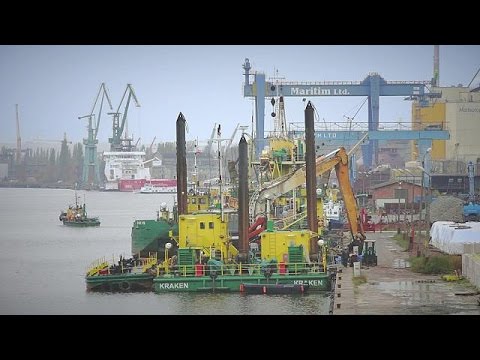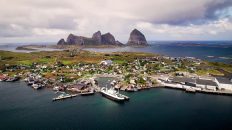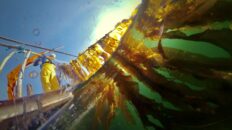Can smart specialization really be a driving force for growth for all of Europe’s regions? Euronews’ Denis Loctier headed off to Poland to find out.
“Poland, and also Europe, are ageing. We live longer, and we want to live healthier and better. So we need smart products,” explained Milena Supernak-Marczewska, R&D coordinator, Vivadental.
Euronews visited a dentistry centre in Gdansk that works on personalising implants and regrowing bone tissue from patient’s own stem cells. To develop these cutting-edge technologies, it teamed up with a local university and a pharmaceutical company. This collaboration is one of the winners of this region’s Smart Specialisation funding.
“In 2014 the Smart Specialisation competition started. So it was obvious for us that we should join in this process, because we knew the potential of the Gdańsk University of Technology and of our centre, and we also knew what the patients need,” added Milena Supernak-Marczewska.
Despite its average economic performance, Poland’s Pomorskie Region became a Smart Specialisation frontrunner by mobilising private initiative.
Unlike other regions, Pomorskie only defined its specialisations after receiving concrete R&D proposals from business and research organisations. It relied on experts to select those with the highest potential.
“We are the only region that had the competition for Smart Specialisation, we had a call for proposals,” said Karolina Lipińska, Smart Specialisation coordinator at Pomorskie Department of Economic Development. “We imagine Smart Specialisation like not being just an idea, but a concrete project that we can commercialise globally, because we are thinking internationally,”
 This bottom-up approach allowed to narrow the wide selection of projects down to four R&D areas – medical, logistics, interactive IT, and eco-efficient energy. That engaged around 300 private companies who provided the other half of the funding, complementing the 250 million euros alloted from the regional fund.
This bottom-up approach allowed to narrow the wide selection of projects down to four R&D areas – medical, logistics, interactive IT, and eco-efficient energy. That engaged around 300 private companies who provided the other half of the funding, complementing the 250 million euros alloted from the regional fund.
“Public source of funding is not the only source of funding; the company also should engage its own capital. I think it’s good for the effectiveness of the projects, and also to have this sustainability in financing sources,” added Karolina Lipińska.
In Poland, the private sector provides on average less than 40% of R&D expenditures. In the Pomorskie region, this indicator is getting closer to the EU average of 55%.
By 2020, this region expects its Smart Specialisation strategy to boost marketable research, improve higher education, increase employment and public health, and promote cleaner and safer energy.





